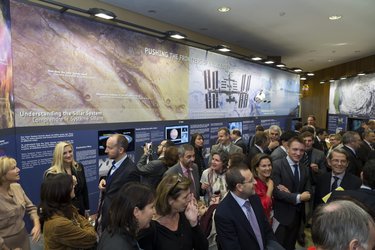
Agency
ESA Euronews: Rockets, Mars and Europe’s future in space
In the afterglow of the Rosetta mission's success in landing on a comet, the member states of ESA met in Luxembourg in early December to look forward to future challenges. Among the priorities is the development and construction of the new rocket, Ariane 6, which is seen as essential to maintaining Europe's lead in the launcher market. Then there's the ExoMars mission to further explore the 'Red Planet' and look for signs of life. But it's not just about probes - ESA's manned spaceflight programme also has momentum, with new astronauts currently in training and due to fly in 2015 and 2016. So, as the agency marks a half century of Europe's space sector, it's onwards and upwards for the next 50 years.













